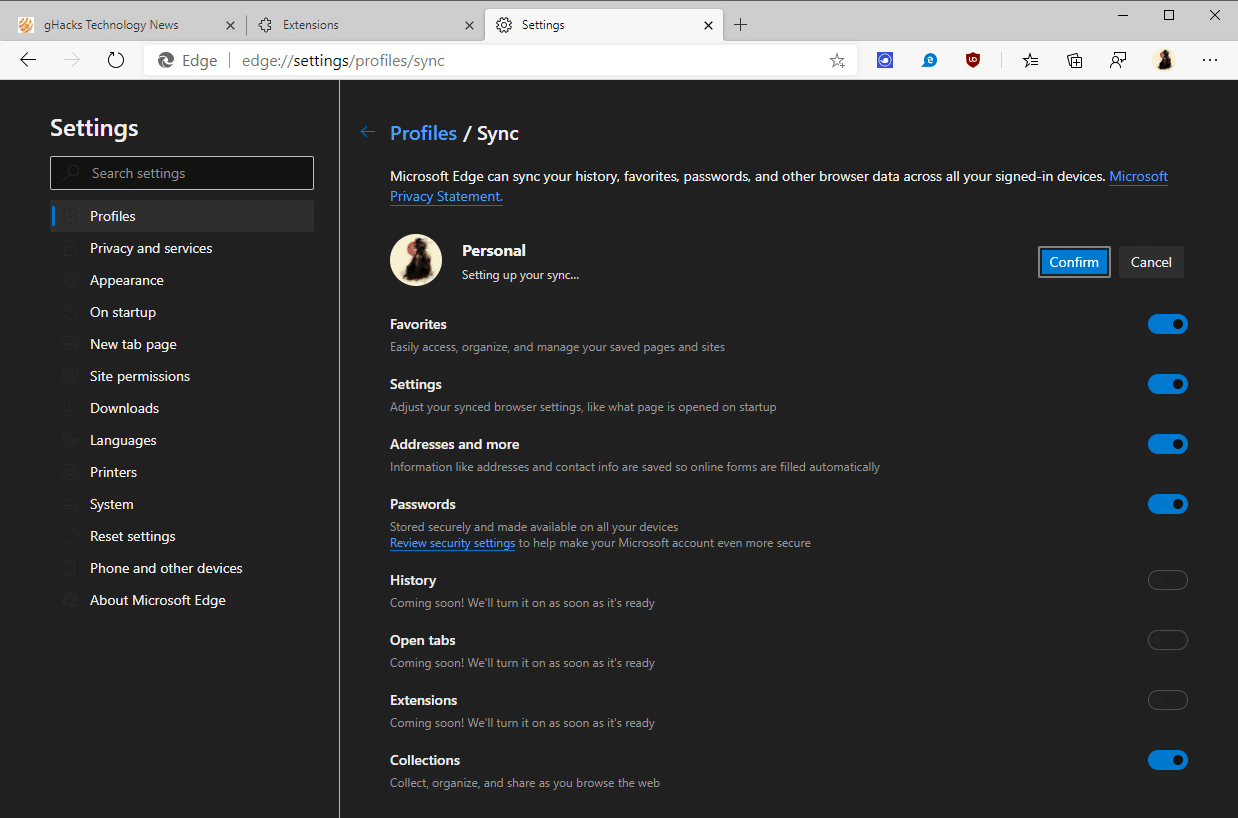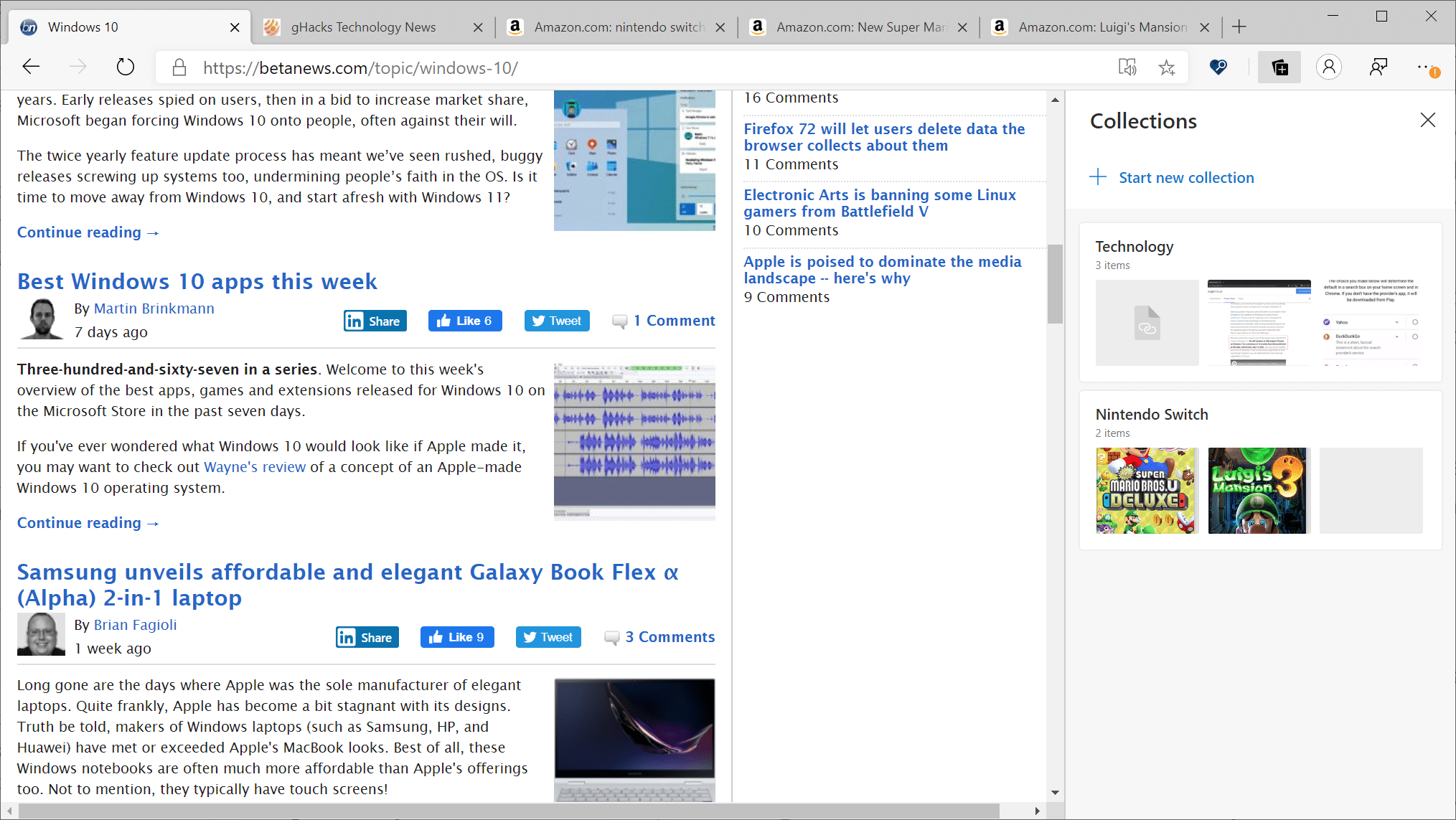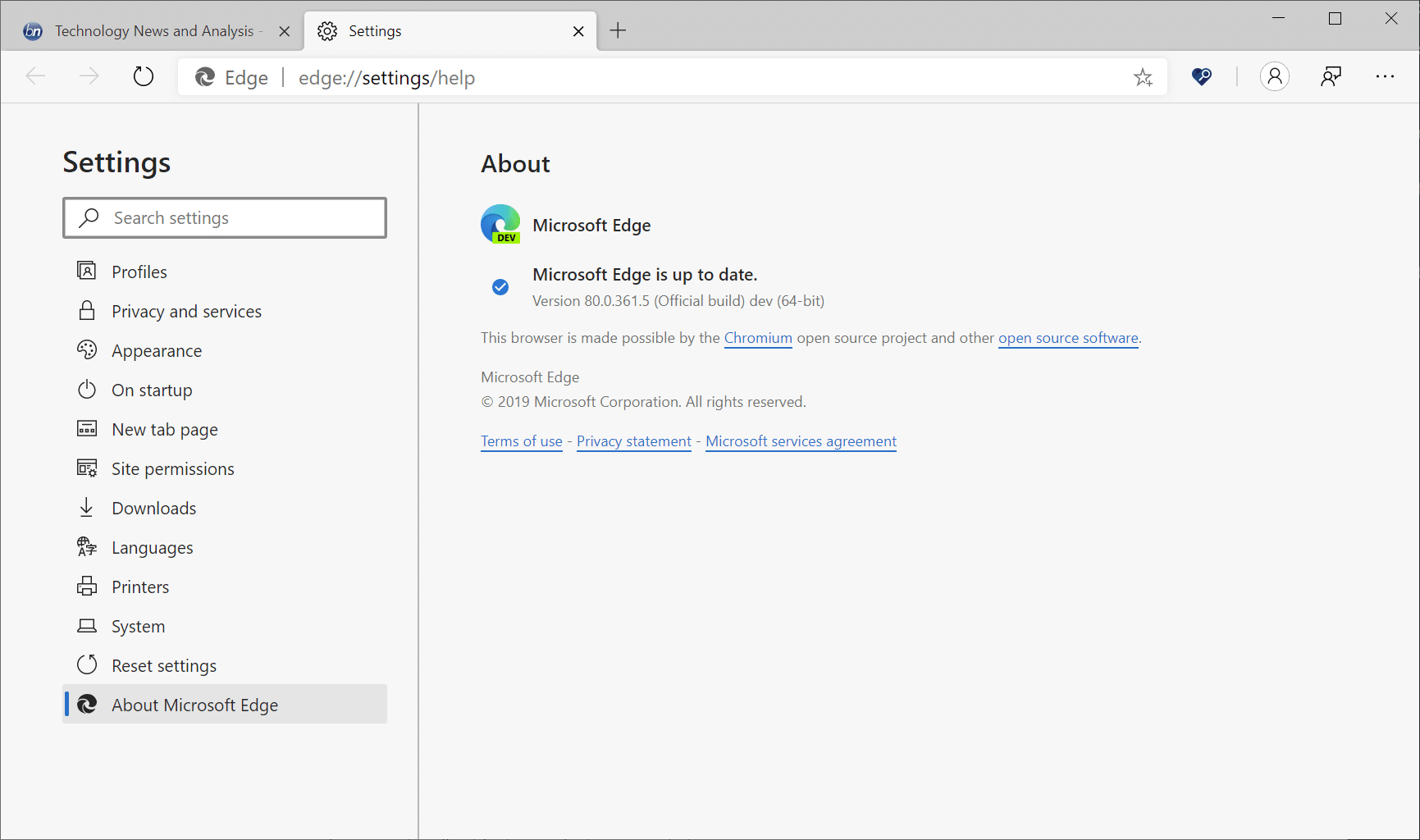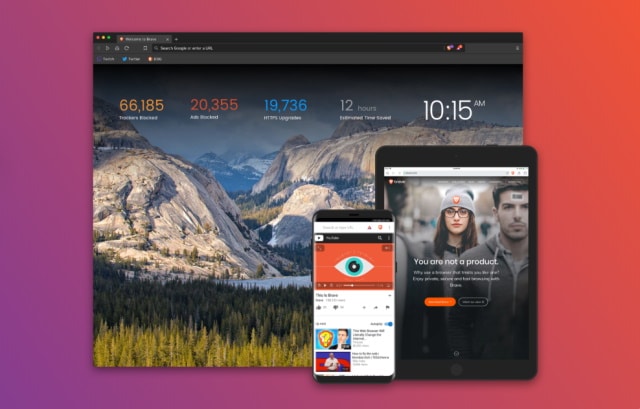
Microsoft Edge now supports Chrome themes -- here's what you need to know
Since switching to the Chromium engine, Microsoft Edge just became a whole lot more interesting -- and development has sped up dramatically.
As well as speeding up Edge, Microsoft has been busy adding new features such as a Potentially Unwanted Apps blocker, support for Chrome extensions and more. One of the latest changes does nothing to add new features, but it is important for anyone concerned with aesthetics; there is now support for Chrome themes to change the look of the browser.

Microsoft ends Internet Explorer 10 support for Windows Server 2012
Microsoft ended support for Internet Explorer 10 -- the default browser of Windows 8 when it was initially released -- in Windows Server 2012 and Windows Embedded 8 Standard in February 2020.
Microsoft notes that "all updates, paid assisted support options, and technical content updates for Internet Explorer 10" are discontinued as of February 11, 2020; this means that Microsoft won't release security updates for Internet Explorer 10 on the March 10, 2020 Patch Tuesday.

Opera R2020 debuts new workspaces feature, makes sidebar setup simpler
Opera Software has released Opera 67.0 (also known as Opera R2020), the latest major update to its Chromium-based web browser for Windows, Mac, Linux and Android. The new release focuses on improving user experience.
The headline feature is the introduction of workspaces to help users keep their browser tidy and organized. This is accompanied by the addition of a new Sidebar Setup panel, plus two new tab management tools.

Enable lazy loading in the new Edge to speed up your browsing
The new Chromium-based Microsoft Edge web browser shares many features with other Chromium-based browsers such as Google Chrome, Vivaldi and Opera.
Google started to integrate native lazy loading support in Google Chrome recently (in Chrome 76 to be precise), and it appears that Microsoft added these capabilities to Microsoft Edge as well.

Edge users will soon be able to sync their extensions and collections
Users of the new Microsoft Edge web browser may soon be able to synchronize extensions and collections using the web browser's built-in sync functionality.
Microsoft started the rollout of the feature in the latest Microsoft Edge Canary version, currently at version 82.0.425.0. While it is not available for all Canary users yet, it is expected that the number will increase in the coming weeks and that the options will be pushed to the Beta and Stable channels of Microsoft Edge eventually.

Microsoft claims massive speed boost in preview builds of Edge
Anyone using the Dev or Canary builds of Microsoft Edge gets to try out all of the latest features and improvements early, and Microsoft says that the latest builds boast huge speed improvements.
The enhanced performance is significant. Microsoft claims improvements of up to 13 percent -- meaning that this is the sort of speed boost that should be noticeable in use, not just measurable in tests.

Microsoft is rolling out Chromium-based Edge to everyone from today, but it's missing important features
Microsoft-related news over the last few days has been all about Windows 7 reaching end-of-life, but today marks the day that the company starts to push the Chromium-based version of Edge to Windows 10 users after beta testing. For businesses and organizations that do not feel ready to make the transition just yet, there is no need to panic.
Microsoft says there are no plans to push the browser to commercial or enterprise devices, and there's a Blocker Toolkit available to disable automatic delivery of Chromium-based Microsoft Edge, anyway. But for Home and Pro users, there is likely to be disappointment for anyone hoping that the rollout of the stable version of the browser would mean it was feature complete. There are in fact several things missing.

A look at new Microsoft Edge's Collections feature
The new Chromium-based Microsoft Edge web browser will be released on January 15, 2020 (a day after support ends for Microsoft's Windows 7 operating system) and Microsoft plans to provide it as an upgrade that will replace the classic version of Edge.
Since the new Edge is based on Chromium, it is clear that some things have changed. You can follow development of the new Edge here on BetaNews or on the official Edge Development blog.

With Chrome 80, Google is making website notifications STFU
When Mozilla released Firefox 72 yesterday, users were happy to find that the company had tamed the popup messages that ask whether a website should be allowed to send notifications. Now, with Chrome 80, Google has done the same.
Google notes that while the option to receive notifications from sites can be useful, they are "also a common complaint as many websites request the notification permission on first visit rather than at contextually relevant moments in the user's journey". But rejoice, for there is a solution!

Firefox 72 improves site notifications tool, rolls out picture-in-picture video to Mac and Linux
Mozilla has released Firefox 72.0 for desktop, along with Firefox for Android 68.4 and Firefox ESR 68.4.0.
Mac and Linux users gain the picture-in-picture video feature introduced for Windows in Firefox 71. Fingerprinting scripts are now blocked as standard with this new release, while intrusive pop-up notifications from websites have been confined to the Address Bar to prevent disruption when browsing.

Error codes are coming to Chrome to help get to the bottom of Aw, Snap! messages
When Chrome crashes, a message reading Aw, Snap! appears -- and it's not particularly helpful. Mindful of this, Google is going to introduce error codes to the browser to help users determine what has gone wrong.
The idea is similar to the blue screen of death (BSoD) that will be familiar to many Windows users. It's currently being tested in the Canary build of Chrome 81, but that doesn't necessarily mean that the error codes will appear in the final build of this version number.

Microsoft Edge for Android now supports legacy and new Edge syncing
Microsoft plans to release the Chromium-based Edge web browser for the desktop on January 15, 2020 (one day after support for Windows 7 ends officially but Windows 7 is supported).
The Chromium-based web browser is only available for desktop operating systems currently. Microsoft published an update for Microsoft Edge on Android recently that prepares the mobile web browser for the upcoming release.

Latest Chromium Edge Dev build adds Dolby Vision, ARM, and 360-degree video support
Microsoft released a new developer build of the company's upcoming Chromium-based Microsoft Edge web browser on Tuesday. The new build increases the version of the browser to 80.0.361.5; existing installations may be upgraded, new users can find downloads on the official Microsoft Edge Insiders download page.
The new release is the final Microsoft Edge Dev build of 2019 and Microsoft decided to end the year with a bang. The Chromium-based browser is now also available for ARM devices. Microsoft is making available ARM64 DEV channel builds starting with this release which means that users who run ARM devices like the Surface Pro X, may install the Dev version of the web browser on these devices.

Browser push notification scams triple in 2019
Fraudulent browser push notifications as a means of delivering phishing and advertising are becoming more common, up from 1.7 million in January to 5.5 million in September this year according to the latest Kaspersky research.
Push notifications were introduced several years ago as a useful tool to keep site visitors informed with regular updates, but today are often used to bombard people with unsolicited advertisements or encourage them to download malicious software.

Privacy-focused web browser Brave exits beta for mobile and desktop
Brave, the open-source web browser which focuses on speed, security and privacy, has officially hit version 1.0 and exited beta.
Available for Windows, macOS, Linux, Android and iOS, Brave boasts that it "blocks ads and trackers that slow you down and invade your privacy". The official launch comes three years after Brave first entered beta testing, and the browser has managed to amass millions of users.
